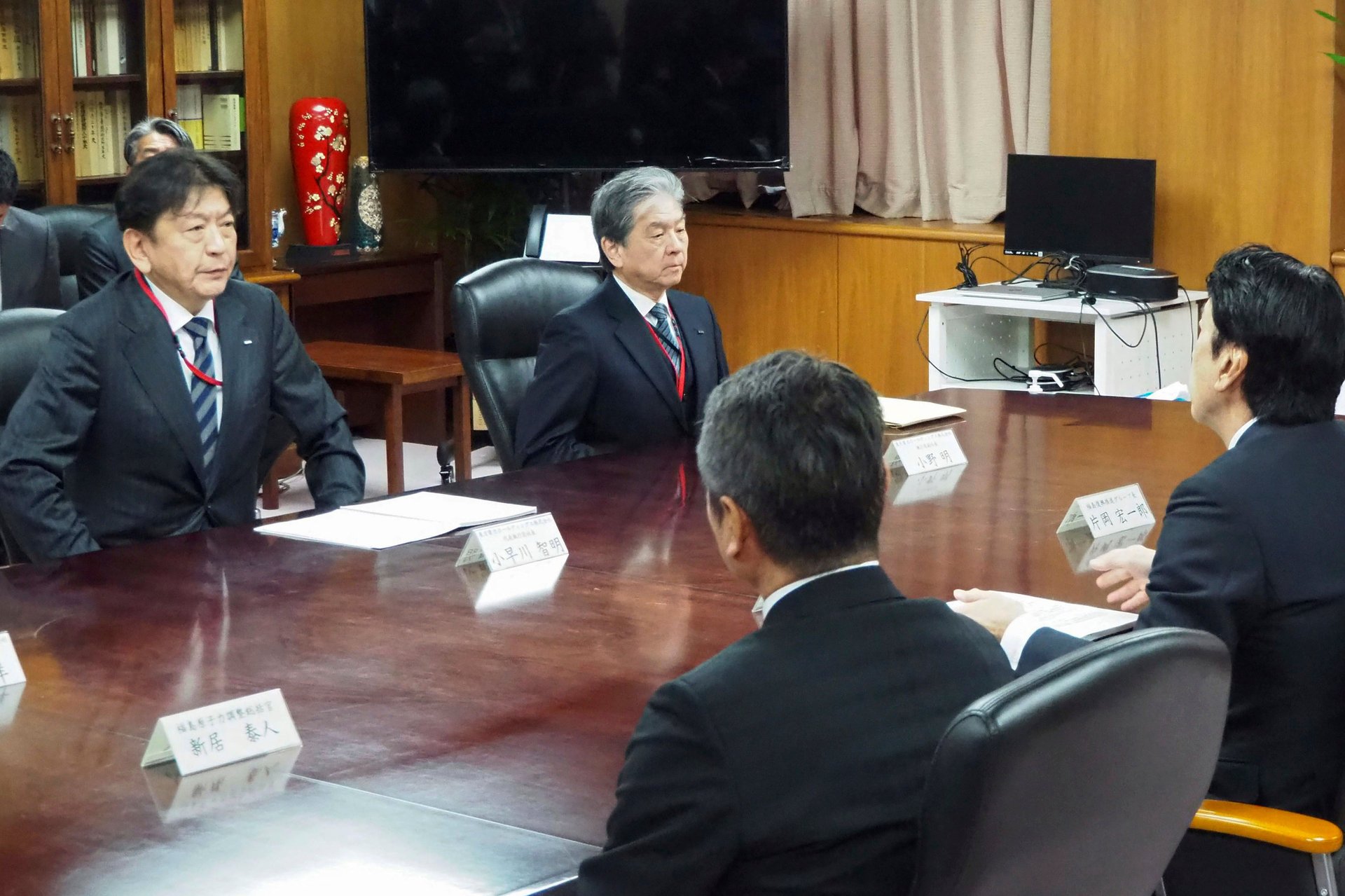Japan's industry minister chides utility president over radioactive water leak at Fukushima plant
Japan’s industry minister has chided the president of the utility that runs the Fukushima nuclear plant for a radioactive water leak earlier this month

TOKYO (AP) — Japan’s industry minister summoned the president of the utility that runs the Fukushima nuclear power plant to his office Wednesday and chided him for a radioactive water leak at the plant earlier this month.
Suggested Reading
Mishaps related to the massive amount of contaminated water at the tsunami-damaged Fukushima Daiichi plant are especially sensitive while the government tries to get support for discharging treated wastewater into the sea — a process that will take decades and has worried people inside and outside Japan.
Related Content
Industry Minister Ken Saito called for heightened safety awareness and preventive measures and urged company President Tomoaki Kobayakawa to take it seriously as a management issue.
The move followed a series of mishaps led by human errors at the plant, where three nuclear reactors melted down after the massive 2011 earthquake and tsunami.
Most recently, 1.5 metric ton of highly radioactive water escaped in early February during valve checks at a SARRY treatment machine designed to remove cesium and strontium from the contaminated water, according to the plant operator, Tokyo Electric Power Company Holdings, or TEPCO. The leakage has been downgraded from an initial estimate of 5.5 tons.
No one was injured and the spill did not escape the plant compound.
Saito called on TEPCO to fully examine the mishaps to find whether they may have common causes, while consider using digital technology as a way of preventing human errors.
“The mishaps would trigger unease in the local community as well as many others in and outside Japan about the safety of the ongoing decommissioning carried out by TEPCO,” the minister said.
In the February incident, workers left several air valves open while they flushed the machine with filtered water — a process intended to reduce radiation levels before the maintenance work. The valves should have been closed, but workers started the flushing without checking.
The leaked water was 10 times more radioactive than the legally releasable limit, according to TEPCO.
In another accidental leak in October, four workers were sprayed with radioactive liquid waste while cleaning a treatment facility. Two were briefly hospitalized for skin contamination, though none showed symptoms of poisoning.
Kobayakawa apologized to the minister over the mishaps, which he said “should not have happened from safety perspectives, and as president I take it very seriously.” After the meeting with the minister, Kobayakawa told reporters that he planned to study ways to effectively prevent human errors while seeking advice from outside experts.
The filtering machine involved in the mishaps are part of TEPCO’s treated controversial wastewater discharges. The project has been strongly opposed by fishing groups and neighboring countries including China, which banned imports of all Japanese seafood.
The Japanese government has struggled to ease concerns in and outside the country, while hoping the International Atomic Energy Agency’s assistance and reviews affirming the discharges have met international safety standards would help win credibility.